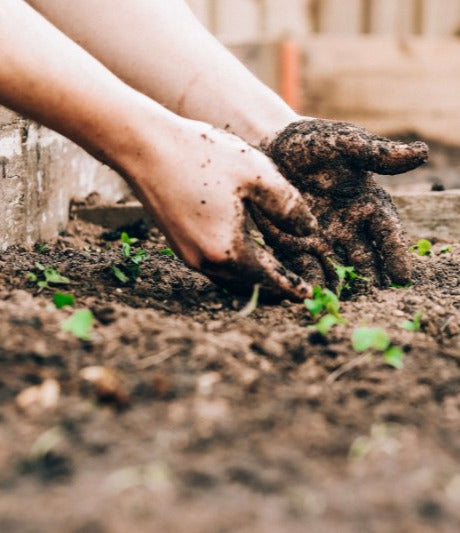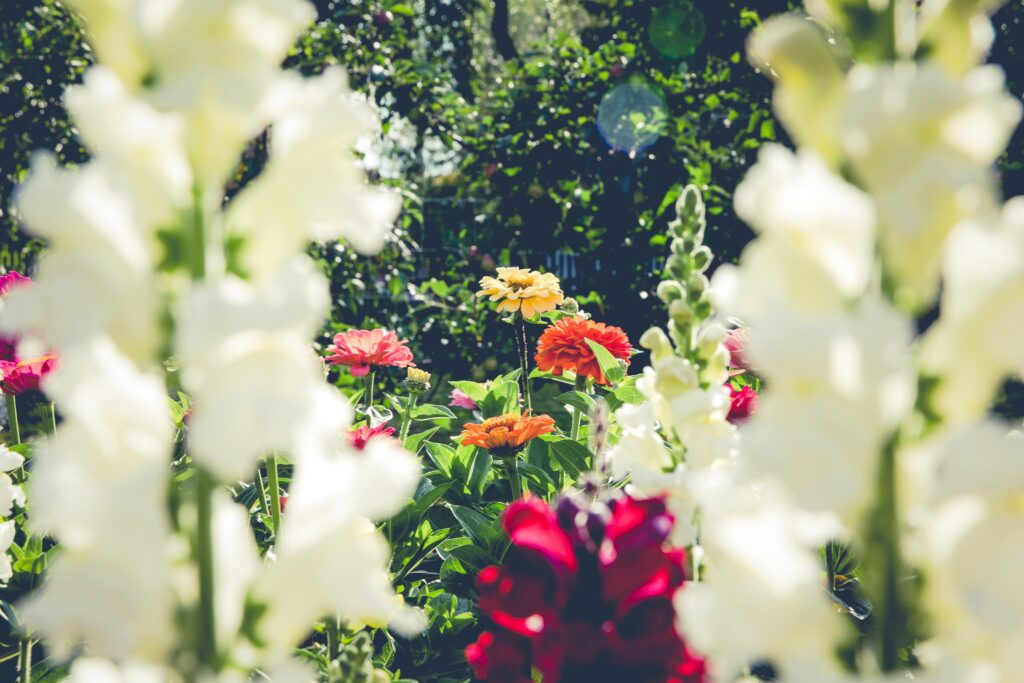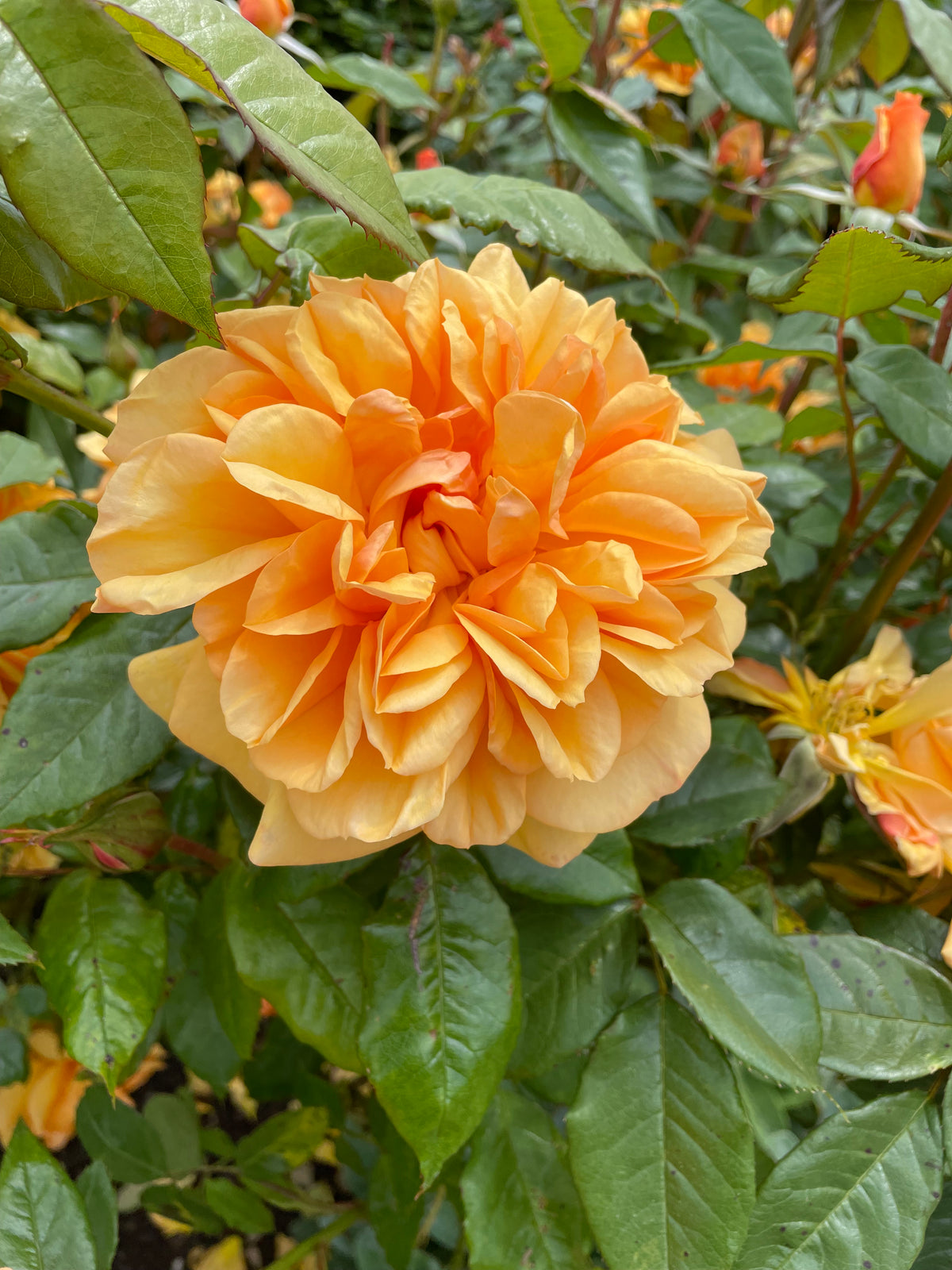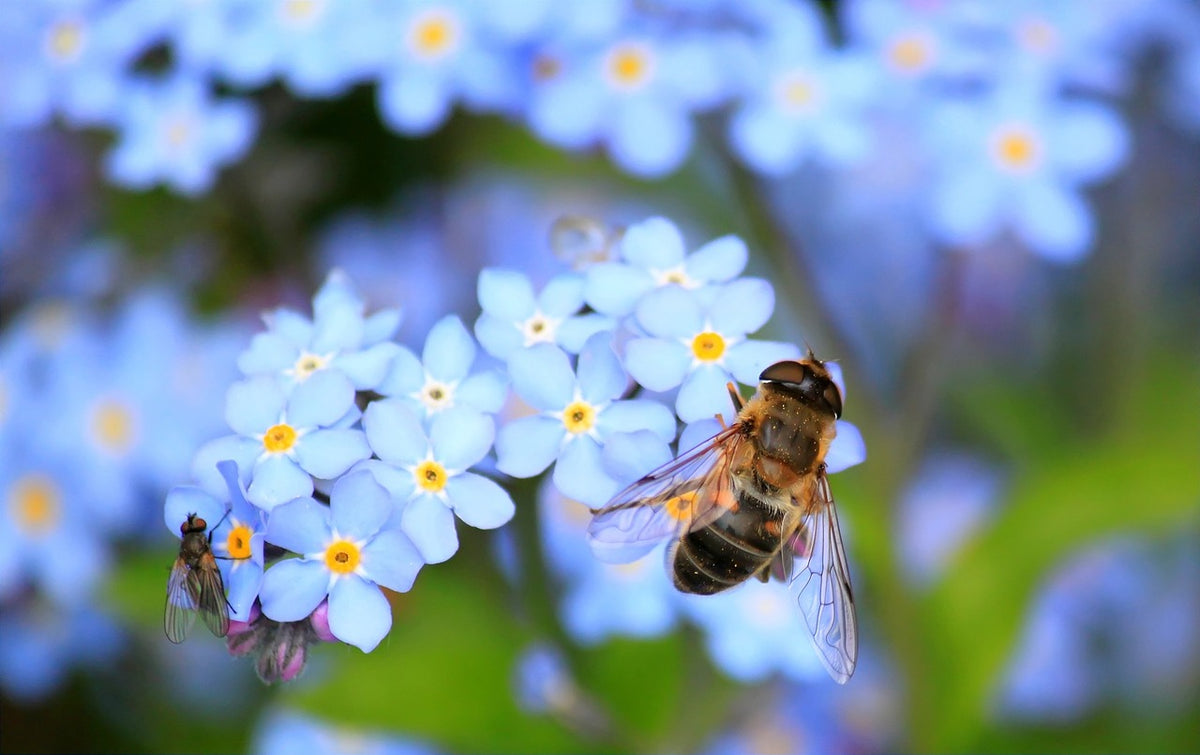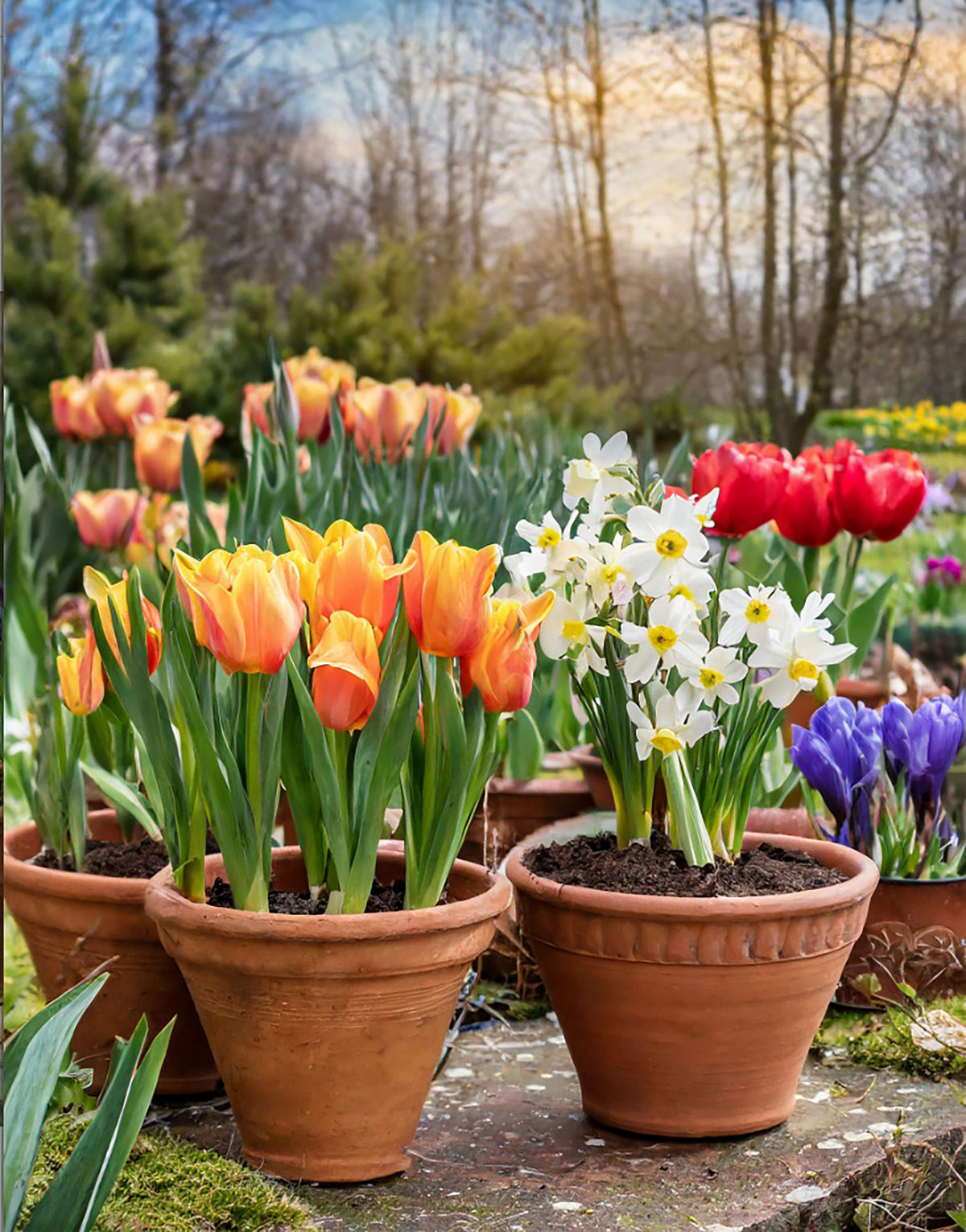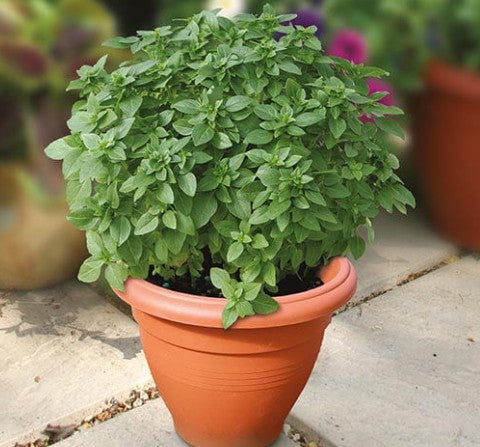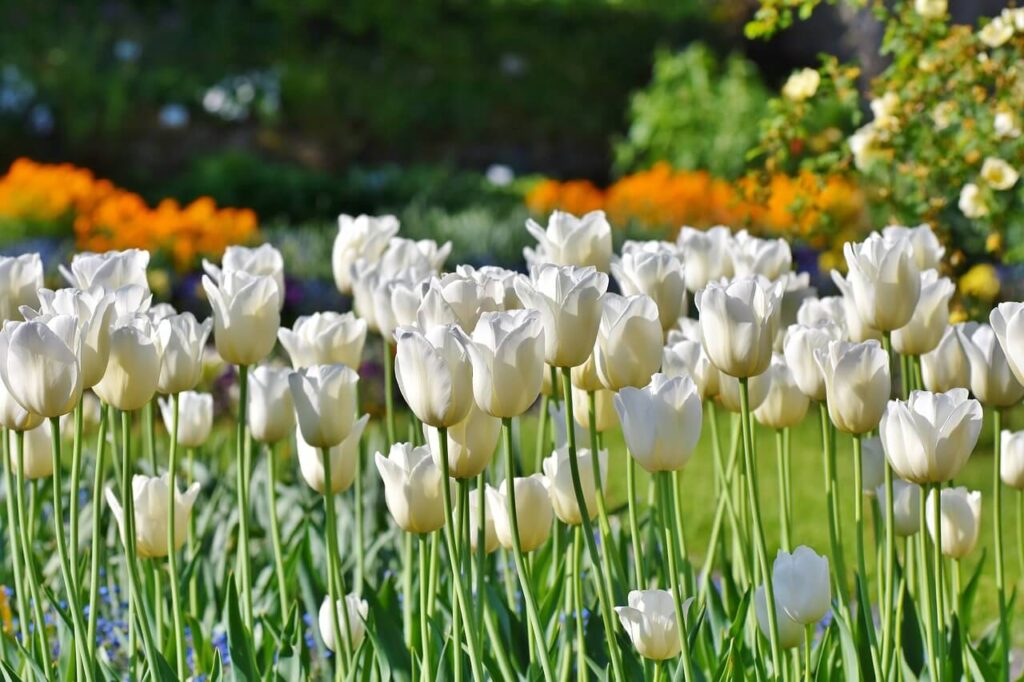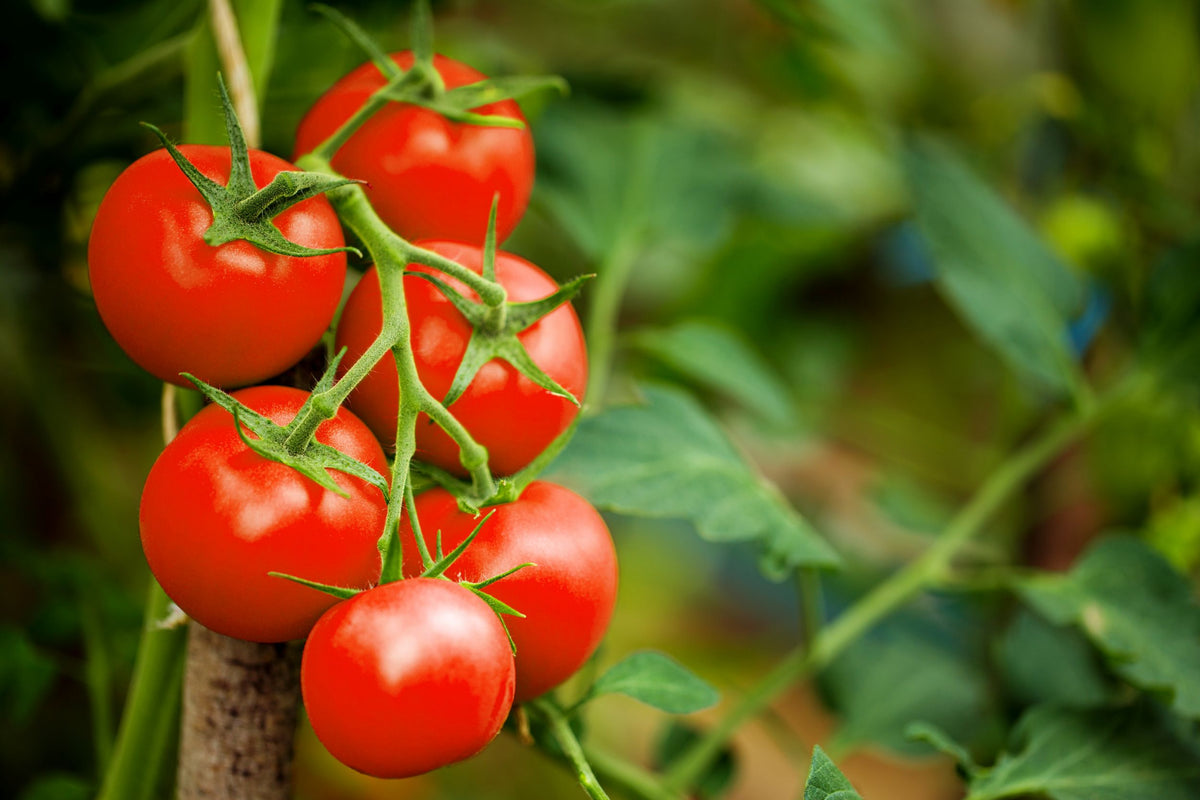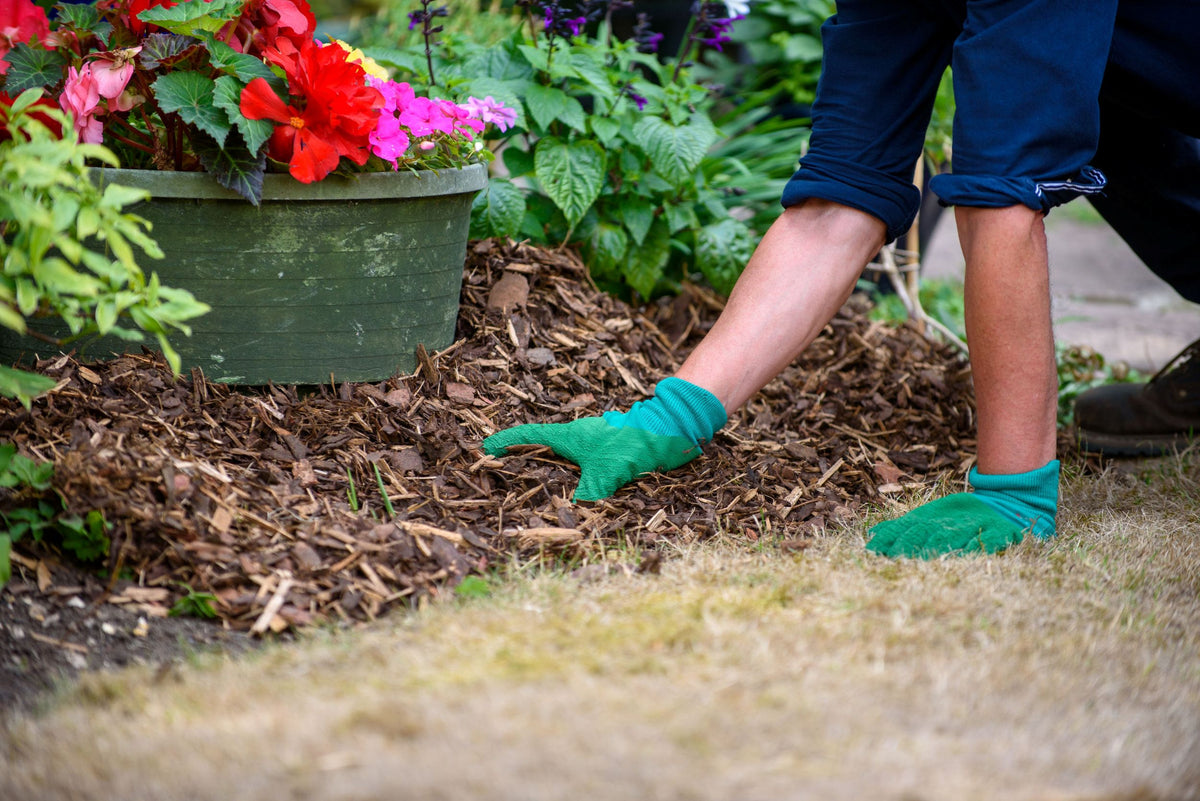Protecting Plants from Frost and Cold
The climate over winter in the UK can be temperamental, but it’s always a good idea to protect your flowers and plants from deep freezes and frost.
Protect tender plants
If you have tender plants, you could cover them with a frost protection fleece. Remove the fleece during milder days to help prevent rot.
Add mulch and compost to perennials
For perennials, we would recommend top-dressing them with a coating of compost at about 1 to 2 inches deep. For tender perennials, it would be best to cut back the stems and place them in a pot somewhere inside and out of the frost until spring. Find out more about mulching your plants for winter with our other blog.
Move potted plants indoors
Plants in pots are especially vulnerable to freezing temperatures. Move them to a sheltered area, like a greenhouse, or bring them indoors if possible.
Soil care in winter
Healthy soil is the foundation of a productive garden, and winter is the perfect time to enrich it for the coming year.
Clear debris and weeds
Start by removing any remaining plants, leaves, or weeds. This reduces the risk of pests overwintering in your garden beds and allows nutrients to penetrate the soil more effectively.
Bed and borders
Around borders and plants, we would recommend adding a layer of Compost Mulch to feed and protect your soil. This will add organic matter and will help prevent the soil from becoming compacted. This will also protect the frost from piercing down to the plant roots.
Prepare
Add organic matter
Adding some Compost Soil Conditioner to feed the soil and to help retain moisture over the cooler months is a great way to prepare your soil for the planting season.
Mulching
Mulching not only suppresses weeds but also helps maintain moisture levels and regulate soil temperature, which is vital in winter. It can also protect your soil from compaction and erosion caused by heavy rain and frost.
Winter plants for the garden
Winter might not sound like the right time to do some planting, but there are some plants and vegetables that do best when planted in the colder months. Here are a few suggestions:
Bulbs for spring
Winter is a prime time for planting bulbs like tulips, daffodils, and hyacinths, which will lie dormant through the cold months and emerge in early spring. Ensure they are planted in well-draining soil to avoid rot. See our when to plant spring bulbs blog for more helpful information!
Winter flowers
If you are keen to see a bit of winter colour in your outdoor space, Hellebores are a hardy flower that can withstand colder months and add a dash of beauty to an otherwise dreary season!
Onions, garlic and broad beans
Onions, garlic and broad beans have a long growing season, so if you plant them in the winter, you should be able to harvest them in the summer.
Winter gardening tips
Here are our top winter gardening tips to help you prepare your garden for the frosty weather:
- Dig into your vegetable plots using a garden fork to let the frost in. This will break down the soil and bring in air, helping to make your soil more manageable in spring.
- Utilise the free fallen leaves and put them either in your compost heap or in your garden waste bin, which in turn will get brought to our green waste recycling site or someone similar.
- Cut back and light prune trees and shrubs. You can also plant new ones, such as Sarcococca to add colour and bring fragrance to your garden.
- Clean out the old plants and vines to ensure that no insect eggs are left on the surface, preventing them from hatching in the spring.
- Birds find it difficult to dig for worms in winter, so add bird feeders to your garden to help provide food.
- Make sure to not over water your plants as in the colder climate the roots do not need it.
- Clean your gardening tools and accessories like pots and seed trays and store them indoors for the spring season.
With these tips, your garden should be well-prepared for winter and you will be able to enjoy the comfort of your warmer home. With the right actions put in place, you can be assured that your garden will have the right nutrients stored and that all will be ready for planting in spring.
Ready to prepare your garden for winter? Earth Cycle has you covered!
Winter gardening might require extra effort, but with the right approach, your garden will emerge healthier and more vibrant in spring. Our range of high-quality products will help support your winter gardening needs. Whether you’re mulching or preparing your garden beds, we have everything you need for your winter gardening.


